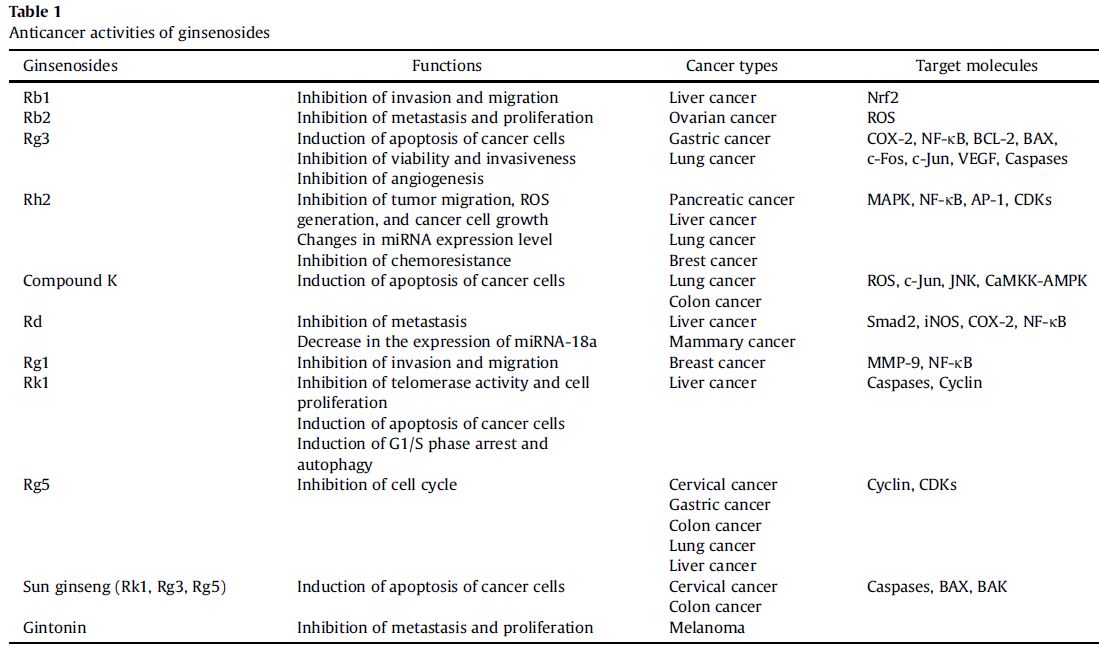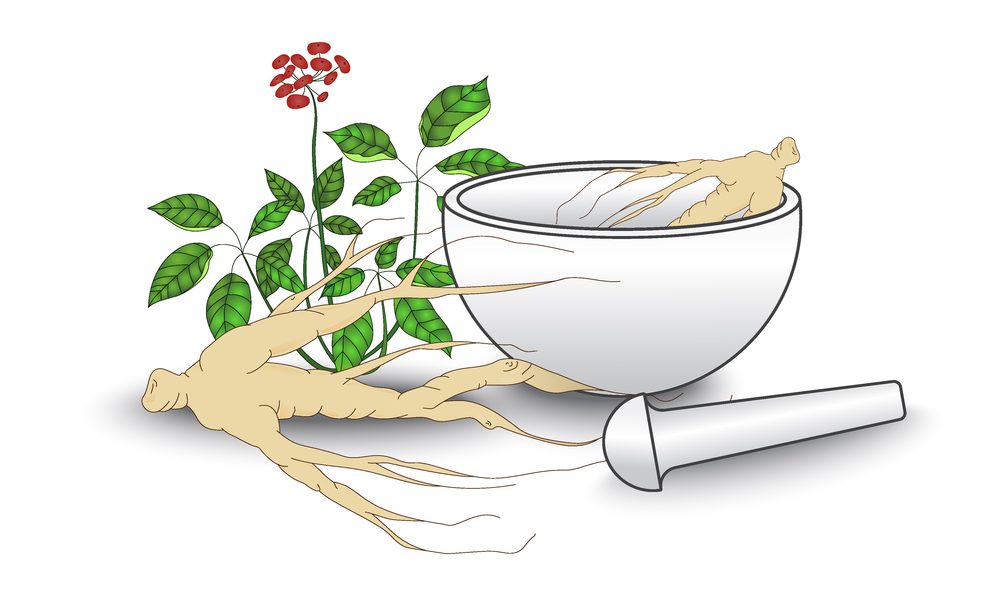5 benefits of ginseng & ginsenosides studies found, it can reduce side effects of anticancer drugs

Ginseng is an Araliaceae plant, found in North America and in eastern Asia. It has long been used as a reliable medicinal herb in Asia for centuries. Scientists interested in Chinese traditional medicine have made varieties of study in the mechanism of action of ginseng and found that ginsenosides extracted from ginseng contribute to ginseng’s pharmaceutical activities. Among them are ginsenosides Rh2 and Rg3 which shows anticancer efficacies. Some potential benefits of ginseng and ginsenosides are presented in some research papers as follows.
1.Enhancing cardiovascular health
In the paper “Therapeutic potential of ginseng in the management of cardiovascular disorders”, Morris Karmazyn, a researcher with Department of Physiology and Pharmacology, Schulich School of Medicine and Dentistry, University of Western Ontario London Canada, together with his team members reviewed a number of experimental studies and acknowledged ginseng and ginsenosides’ potential in combating cardiovascular disorders. In many experimental models, ginseng and ginsenosides are proved beneficial to protecting the ischaemic and reperfused heart and alleviating hypertension.
2.Stimulation of immune function
Researchers from Department of Immunology, Beijing Institute of Geriatrics conducted an experiment on two age groups. 10 young people and 19 elderly people were involved and Scientists cocultured lymphocytes of two groups for 72 h with PHA and ginsenoside Rg1. This experiment found that the elderly have lower the CD25 and CD45RA positive cells of lymphocytes but have more CD45RO positive cells, compared with the young people, which indicated that ginsenoside Rg1 shows a positive mechanism of action beneficial to the strengthening of the immune system.
3.Increasing resistance to stress
An Indian scientist in his paper “Anti-stress effects of Ginkgo biloba and Panax ginseng: a comparative study” presented pharmaceutical properties of Indian ginseng and Asian ginseng in fighting stress. The research compared the effects of Ginkgo biloba and Panax ginseng on the changes of some biochemical parameters like plasma glucose (GL), triglycerides (TG), cholesterol (CL), creatine kinase (CK), and serum corticosterone (CORT) which are important indicators for measuring stress. The research results showed that both Ginkgo biloba and Panax ginseng have anti-stress activities, and more specifically, Ginkgo biloba is more effective in acute stress while Panax ginseng will be a better option for chronic stress.
4.Enhancing learning and memory
The researchers from Department of Psychology, Georgia College and State University Zhao R and McDaniel WF, explored possible mechanism of action of ginseng on improving strategy learning. In the trial 1, when tested with an elevated rotating rod, brain-damaged rats administrating ginseng extract showed improved learning deficit. In the trial 2, with added difficulty in the reverse rotating rod, the rats taking higher dose presented better performance in learning and cognitive abilities.
5.Combating cancers in chemoprotective and chemotherapeutic activities
Scientists of the Republic of Korea summarized functional roles of ginseng-derived compounds in cancer in the paper “Functional role of ginseng-derived compounds in cancer“, which is a really good overview of ginsenosides’ anticancer activities. As is shown in the following table, ginsenosides can help inhibit the invasion, migration, angiogenesis of cancerous cells, and meanwhile, they can be used in the cancer treatment to reduce the side effects of anticancer drugs thanks to their good chemoresistance.

Further research on ginsenosides and their mechanisms of action are needed in the future. Based on the existing study fruits, we can take a promising belief that more ginsenosides compounds will be applied to clinical practices to benefit people.


